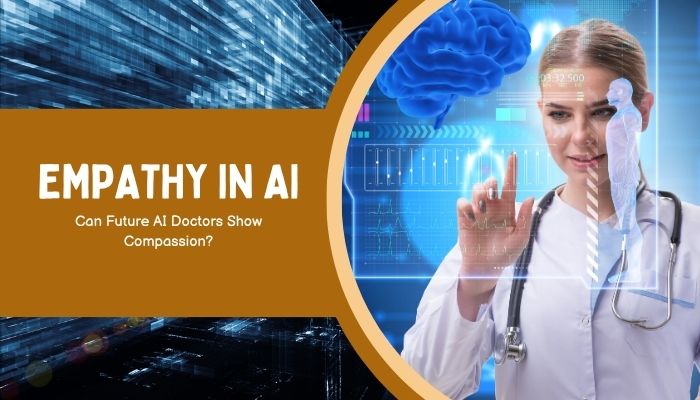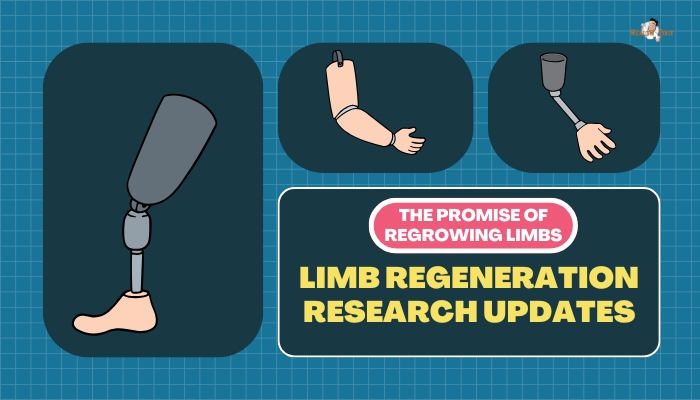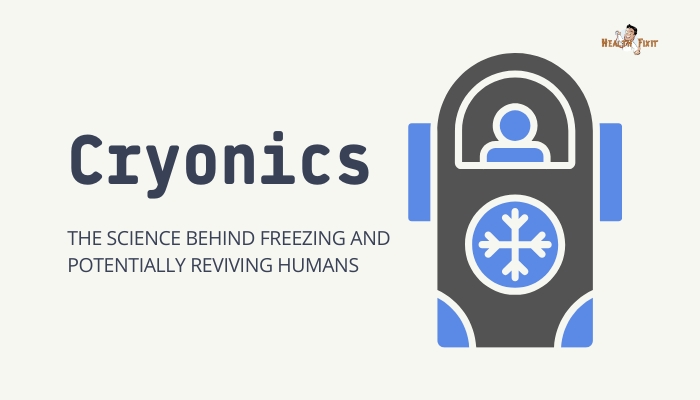Introduction
As artificial intelligence evolves, its reach extends beyond data-crunching and diagnostics into realms that have traditionally been uniquely human—like empathy and compassion. Healthcare, in particular, demands sensitivity,
reassurance, and emotional support. But can an AI doctor ever truly show empathy the way a human physician does? While current AI systems analyze symptoms and suggest treatments
, the next wave focuses on emotional intelligence—detecting patient distress, offering comforting words, and forging deeper bonds.
This article investigates the feasibility and significance of “empathetic AI,” how it might transform patient experiences, and the ethical debates around machine-generated compassion.
Why Empathy in Healthcare Matters
[H3] Patient Trust and Compliance
When patients feel listened to and validated, they’re more likely to trust medical advice, adhere to treatments,
and engage in open dialogue about symptoms. Empathetic interactions reduce anxiety and foster stronger therapeutic alliances.
Psychological Support
Beyond physical ailments, patients often grapple with fear or stress. Compassionate communication can mitigate emotional burdens and improve overall outcomes
. For instance, studies show patients who perceive high empathy from clinicians may report less pain or improved satisfaction.
The Human Touch Gap
Despite modern technology, many healthcare settings remain rushed, with doctors strapped for time. Some patients fall through the cracks—feeling neglected. An empathetic AI agent might supplement overworked staff, ensuring at least a baseline of attentive, warm communication.
Pathways to “Empathetic” AI
Natural Language Processing and Emotion Recognition
AI chatbots and virtual assistants can sense emotion from voice intonation or text cues—like analyzing sentiment or linguistic patterns.
Over time, these systems refine responses, offering supportive or comforting phrasing. E.g., “I hear you’re worried about your symptoms; let’s explore solutions together.”
Facial and Voice Analysis
Advanced AI can read micro-expressions or subtle pitch shifts. If a patient’s face shows distress, the system might adapt its tone or content, paralleling how a compassionate doctor modulates language to console anxious patients.
Personalized AI Models
By merging medical data (patient history, biometrics) with social context, an AI “doctor” could tailor empathetic replies. If it detects repeated signs of stress, it might gently probe for mental health concerns or suggest scheduling therapy, mirroring a caring physician’s intuitive approach.
Benefits for Healthcare
Augmenting Doctor-Patient Bond
AI empathy isn’t about replacing humans. Instead, it can complement real doctors—extending supportive interactions outside busy clinics or hospital wards
. Patients can check in with an AI system for daily reassurance, symptom tracking, or mental health coaching, which a human professional oversees.
Reducing Burnout
Doctors endure emotional fatigue from constant empathy demands. If an AI shouldered part of the empathetic communication burden, it might free clinicians to focus on advanced diagnoses or complex tasks while ensuring no patient feels emotionally neglected.
24/7 Access
An empathetic AI is always online—patients can interact at midnight if anxiety flares. This continuous availability fosters a sense of companionship and early intervention for concerns, bridging gaps in mental healthcare or chronic disease management.
Skepticism and Ethical Challenges
Genuine Compassion vs. Simulation
Critics argue that AI can only simulate empathy—generating empathetic language but lacking actual emotion or understanding. Some worry this “faux empathy” could manipulate patients or trivialize real human connection.
Privacy and Data Handling
Emotion-detection AI typically collects personal data—facial expressions, voice patterns, psychological states. Ensuring robust privacy, encryption, and minimal data retention is critical to maintain trust and prevent misuse.
Risk of Over-Reliance
If patients rely heavily on an AI for emotional support, they may fail to seek professional counseling or real social connections. Additionally, if the AI’s empathic algorithms lag behind real human nuance, patients might receive inadequate responses in critical moments.
The Future of Compassionate AI in Healthcare
Hybrid Care Models
Likely, we’ll see AI working alongside human caregivers. While AI handles routine check-ins or symptom triage, doctors and nurses step in for advanced or nuanced empathy. Over time, the lines might blur, especially as AI grows more sophisticated.
Continuous Improvement
Machine learning systems can refine their empathetic responses by analyzing patient feedback and outcomes. Over thousands of interactions, they may better predict the phrases or tones that effectively calm distressed patients—resulting in even more natural conversation.
Expanding to Telemedicine
AI empathy might become a standard feature in telemedicine portals. Video or text-based sessions include real-time emotional analysis—helping remote doctors gauge a patient’s emotional state or automatically adjusting the system’s approach to show calm reassurance.
Recommendations for Healthcare Stakeholders
- Integrate Ethically: AI empathy must be transparent; disclaimers clarifying these are algorithms. Avoid deceiving patients into believing they’re interacting with a human.
- Train Staff: Even if AI handles preliminary empathic tasks, clinical staff must interpret the data, confirm medical decisions, and address complex emotional or ethical issues.
- Ensure Oversight: Continual audits and updates keep the system’s empathy alignment healthy—preventing manipulative or insincere-sounding scripts.
- Respect Patient Choice: Some prefer strictly human contact; they may find computerized empathy off-putting. Always offer an opt-out to see a real person.
Conclusion
AI nursing assistants or “AI doctors” with “empathy modules” stand on the frontier of medicine. While these systems can lighten clinical loads and provide around-the-clock patient support, real questions remain about authenticity
, trust, and the intangible value of genuine human compassion. Over time, as machine intelligence evolves and emotional detection improves
, we’ll see more synergy between advanced AI “bedside manners” and expert human care.
The potential to scale empathy and reassurance is enormous, but it must be deployed responsibly—ensuring technology complements, rather than replaces, the deeply human core of healthcare.
References
- Davenport T, Kalakota R. The potential for artificial empathy in healthcare. AI Magazine. 2019;40(1):24–35.
- Luxton DD. AI-based chatbots for healthcare. JAMA. 2021;326(5):388–389.
- Wieringa RJ, et al. Psychological aspects of implementing empathic AI in clinical environments. Healthc Manage Forum. 2020;33(1):5–12.
- McColl-Kennedy JR, et al. The service in healthcare: bridging empathy and technology. J Serv Res. 2017;20(2):126–141.
- De Mello G, et al. Designing empathic AI for mental health. Interact Comput. 2021;33(4):399–412.
- Kocaballi AB, et al. Are we ready for empathic AI in healthcare? A systematic review of design and ethical considerations. J Am Med Inform Assoc. 2022;29(9):1535–1545.
- Berry LL, et al. The empathy-based value chain: bridging empathy to improved patient outcomes. Mayo Clin Proc. 2021;96(7):1725–1733.
- Shu L, et al. An ethical approach to artificially empathetic agents in medicine. Camb Q Healthc Ethics. 2020;29(4):638–647.
- Mihalescu V. Sense and sensibility: can AI truly understand emotion? Curr Opin Behav Sci. 2021;40:131–137.
- Reddy E, Aggarwal S. The role of AI in tele-nursing and empathic e-health. Comput Biol Med. 2022;144:105458.







